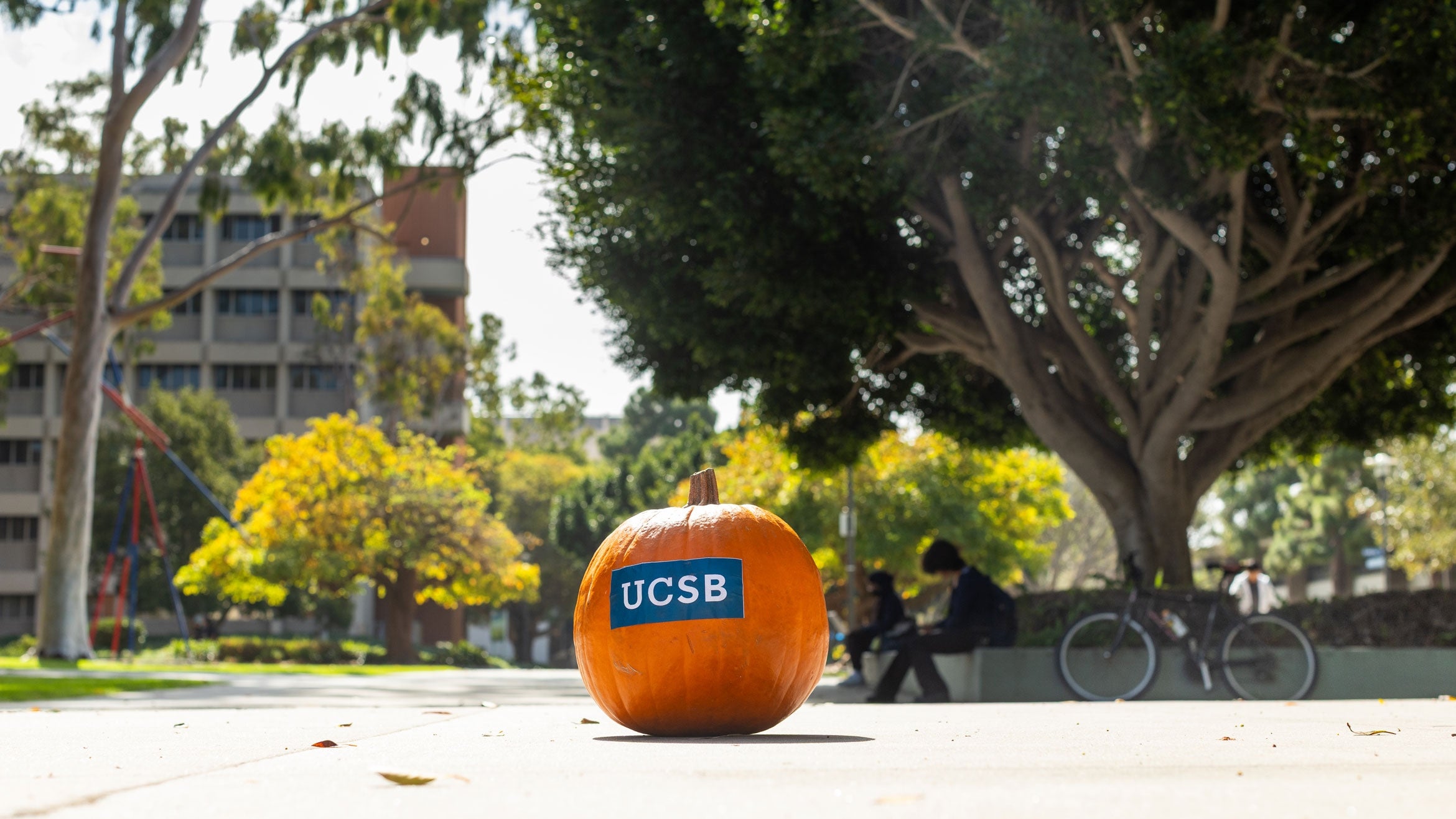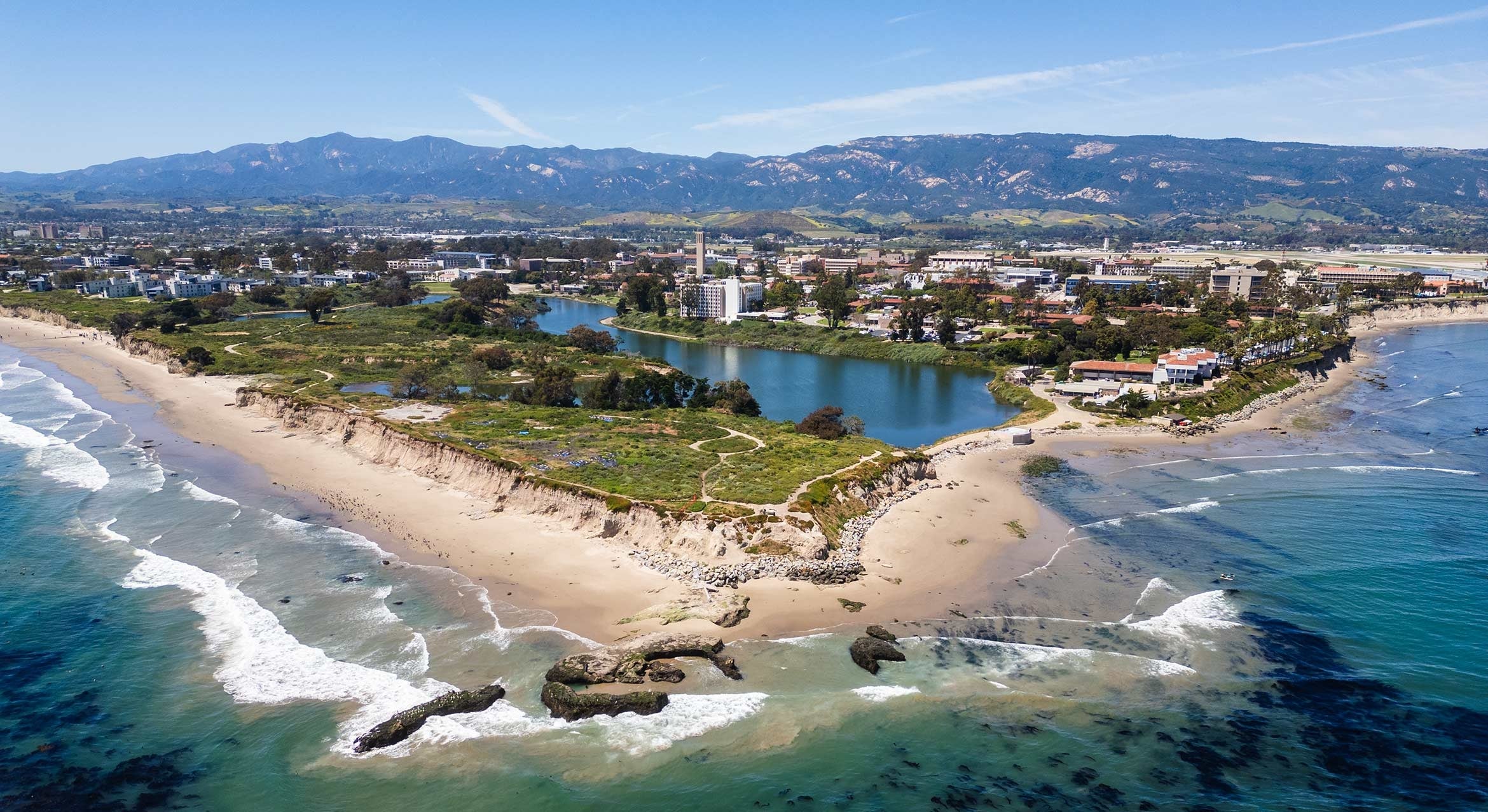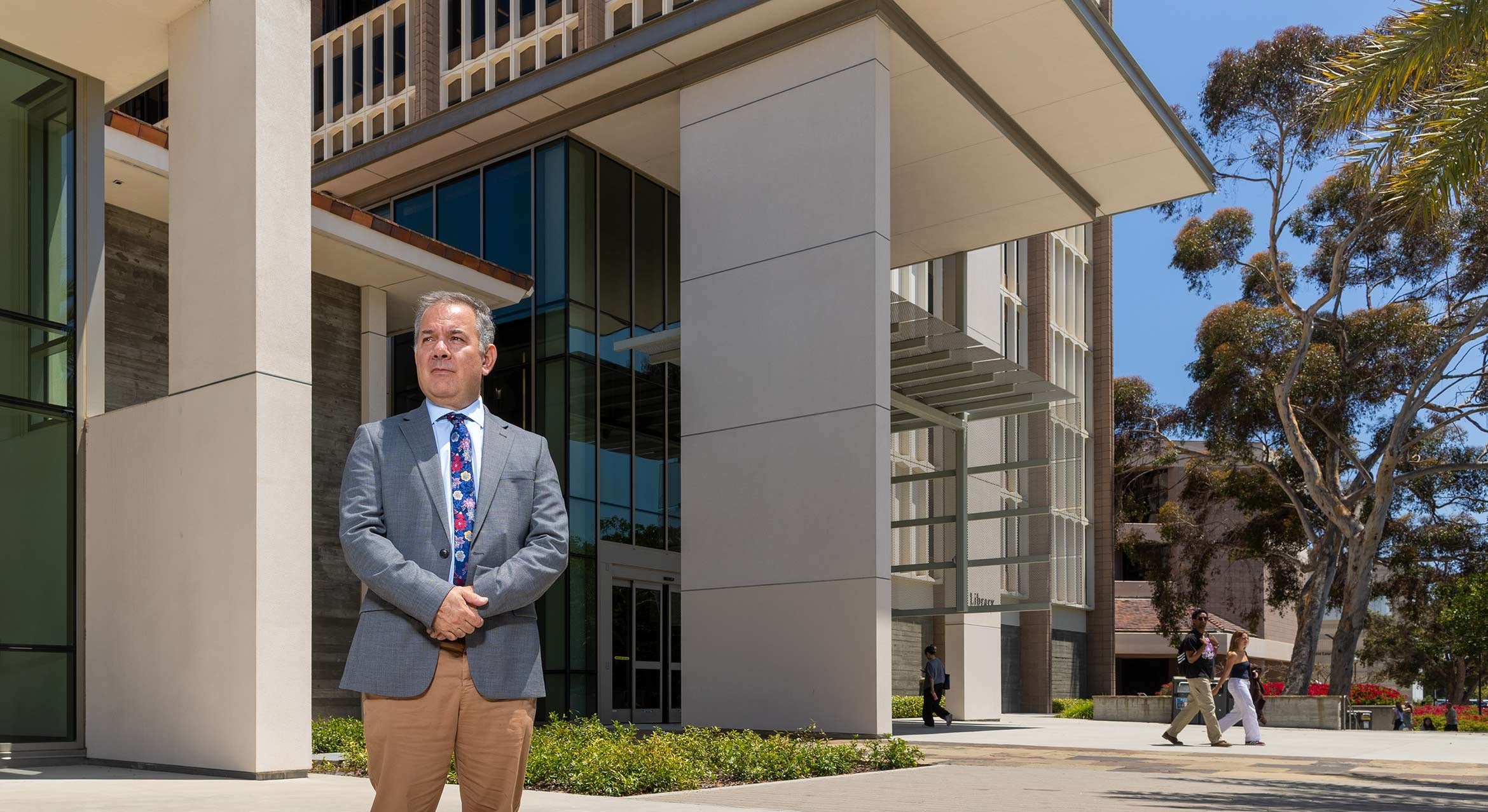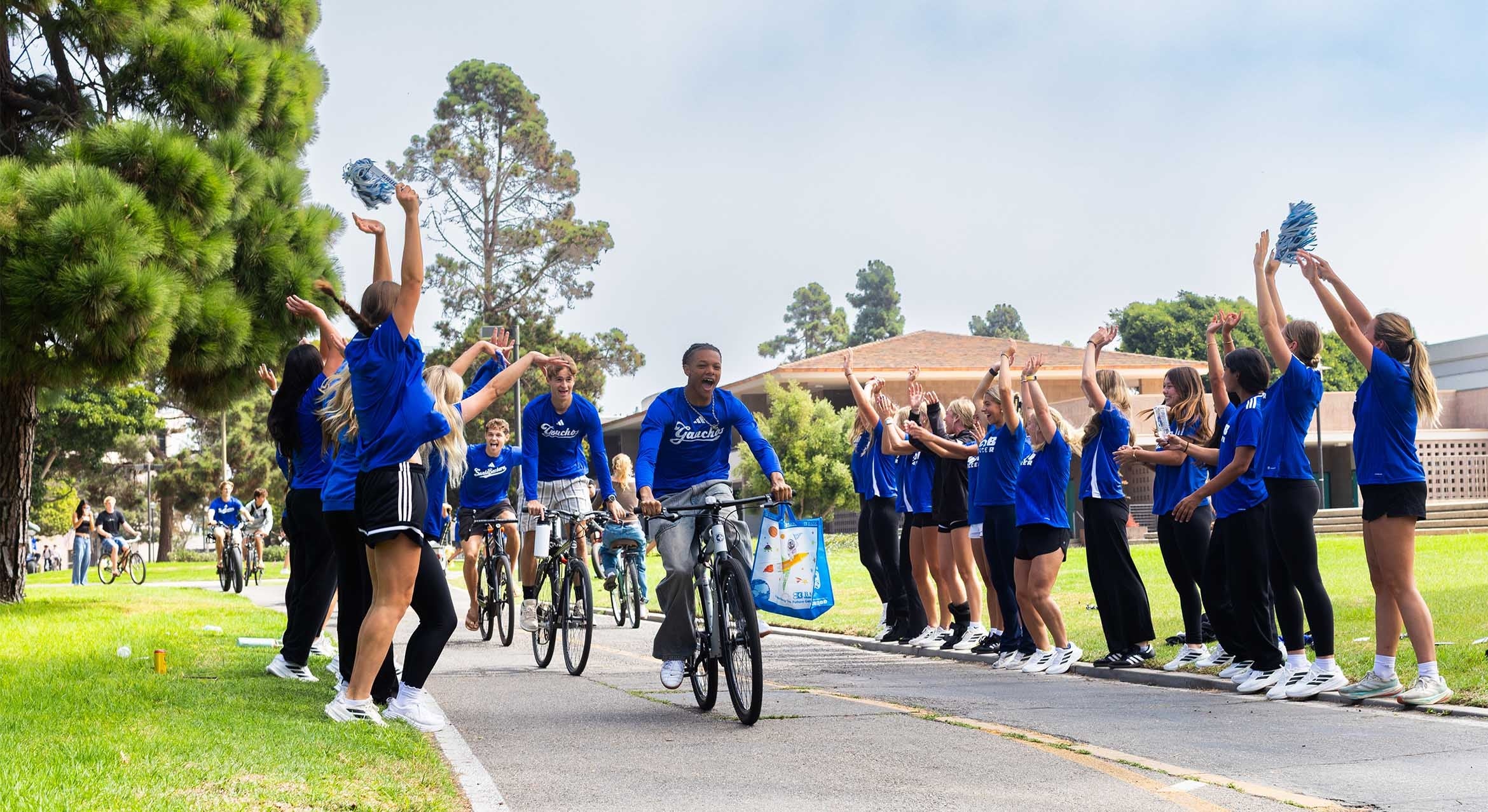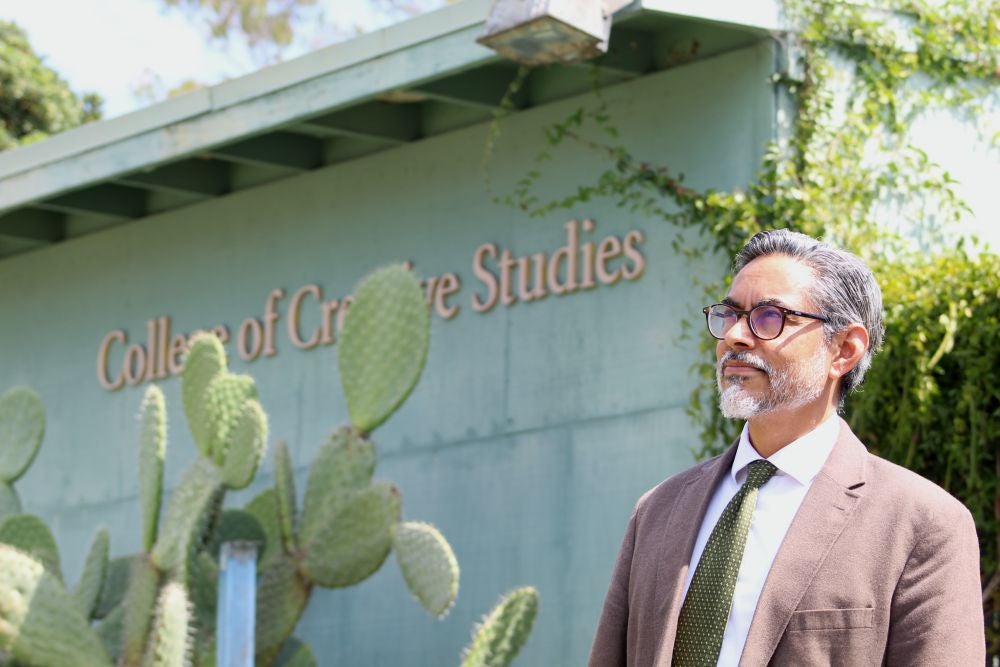
Off and Running
Not a lot of people have come into a new job as ready as Gerardo Aldana, the new dean of UC Santa Barbara’s College of Creative Studies (CCS), the campus’s unique community of self-motivated undergraduate students.
A professor of anthropology and of Chicana and Chicano studies, Aldana was associate dean of CCS from 2014 to 2016 and served two terms on the CCS Faculty Executive Committee. He knows the territory.
Which means, of course, that he doesn’t have to spend weeks or months getting the lay of the land. He has a clear vision for CCS and knew, from Day 1, where he wanted to take it. It might’ve caught a few people off guard.
“I feel like there’s kind of a sense when a new administrator comes in there’s going to be a delay, a process. ‘Let’s understand the new institution. Let’s understand how things work here,’ and all that kind of stuff,” Aldana said. “And I feel like I had enough familiarity already and I had enough ideas already, I kind of wanted to say, ‘OK, let’s hit the ground running.’ And I’m not sure that everybody was ready for that.”
That’s not to say he encountered much resistance. His goals — greater diversity, making the experience more multidisciplinary, creating a program in which advanced CCS students serve as mentors to others in the university and beyond — enjoy broad support.
A Broader Education
One of the chief things that makes CCS unique is the flexibility students have to create, with a faculty advisor, their own study plan for one of the college’s eight majors. Its general education (GE) program, as Aldana noted, is fluid and allows students to focus on their chosen major. He believes it can be improved.
CCS, he said, is working on a pilot program that will take advantage of the GE program’s flexibility to provide students a broader education with real-world applications.
To do that, CCS has developed new courses that serve as options within the GE structure, Aldana said, that address a critical social or environmental justice issue. The courses will be multidisciplinary — chemistry and art, say, or physics and music.
“You’re really getting students exposed to thinking within their discipline, but also across disciplines at the same time,” he said. “And they’re addressing these really large problems that society is facing overall.
“So if we can include those in the undergraduate experience,” Aldana continued, “then hopefully, at a curricular level, it also translates into how they’re thinking about things outside of that one class and then includes more conversations between them to create more of a CCS college-level identity, which then can again be more inclusive.”
A Matter of Diversity
CCS’s nearly 400 students represent an impressive segment of academia: They’re bright and passionately curious, and the student experience is centered in creative activity and research experience, which Aldana called “one of the things that’s brilliant about the place.”
“What I think complicates it a little bit is that that experience has not necessarily been accessible to the demographics that constitute the California population,” he said. “And if we’re a public institution, we have a charge that we should recognize that accessibility is a challenge for some, that diversity doesn’t come without hard work. So that’s what I think drives the need for a different kind of leadership right now.”
The precise steps to achieving a more representative diversity of students are a work in progress, but Aldana is committed to making CCS look a lot more like the rest of California. He has started by creating CCS Diversity, Equity & Inclusion committees at the student, staff and faculty levels.
“We have issues of diversity and we have issues of inclusion that we haven’t necessarily addressed in those things to take a proactive stance,” he said. “So to me right now, that’s what I’m thinking. I’m not thinking about radically changing the college. I wouldn’t want to do that, but I do want to make the experience open to a more diverse population.”
A Group of Mentors
Aldana knows CCS is often seen as somewhat insular, the college within the university. “ ‘Oh, CCS is that small college in the funkily colored building,’ ” as he described it. How do you change that perception? One way, Aldana said, is by engaging the campus and community.
He noted that CCS students have considerable privileges, such as priority registration and the ability to drop classes late if needed, among others, “because we want to encourage exploration, we want you to expand. We want you to test yourself.”
Aldana said those privileges should come with accountability. How are they going to give back when they’re getting so much? To that end, CCS is working to develop a student ambassador program in which advanced students can serve as mentors to first- and second-year students who are interested in research, art or creative activities but are not sure where to start.
“If we can create this level of kind of a mentorship with our advanced students for incoming students — not just in CCS, but also in Letters and Science, while appealing to high school students — then we’re really taking those advantages that we’re giving students and turning them into assets for the community at a much broader level at the same time,” he said.
Inspired and Looking Ahead
By any measure, 2020 has been a freak show of challenges. CCS classes, like nearly all at UCSB, will be conducted remotely. It can be hard to build a community when all your interactions involve staring into a computer screen. Aldana, however, said the run-up to the fall quarter has given him confidence his students are on board and eager to get going.
“I’ve been really inspired,” he said. “We have a student group called Community Council, and they’ve said, ‘We want to make sure that people feel like they’re part of CCS this year, even though a lot of our activity is going to be remote.’ So they’re already organizing, they already had a game night and they’re connecting on social media, and it’s just really inspiring to see that resilience, that motivation to retain whatever we can of the CCS experience, even if it is online.”
And the Hat?
Former CCS dean Bruce Tiffney famously wore a wizard’s hat at the college’s commencement. How about Aldana?
“There’s a possibility,” he said. “I have been known to try it on.”
